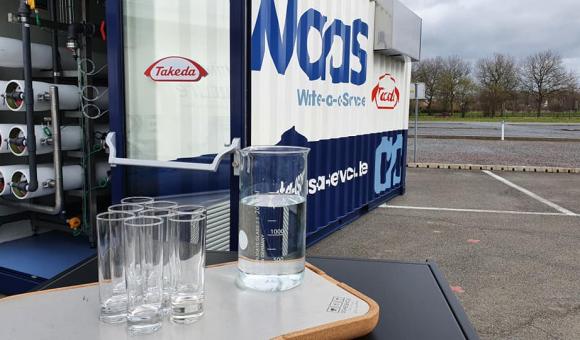As part of World Water Day, Takeda has just unveiled its new facilities in Lessines, becoming the first pharmaceutical site in the world to reuse 90% of its wastewater. The Japanese group has joined forces with Ekopak's Belgian technology, which will enable it to filter this water until it can be used again in its drug production process, which is subject to the strictest quality requirements.
This is a significant investment for Takeda, as its Lessines site is the Japanese biopharmaceutical group's third largest site in the world. With its 1,200 employees, it is also one of the largest pharma sites in Belgium.
Ekopak's Belgian technology allows for large-scale recycling and treatment of rainwater and wastewater. This innovation is all the more sought after in the water-intensive pharmaceutical sector.
This highly sophisticated filtering system (filtered wastewater becomes drinkable again) is mechanical and guaranteed chemical-free. It should not only save 600,000 cubic metres of tap water per year, equivalent to the consumption of 18,000 Belgians (the number of inhabitants of Lessines), but also reduce the use of chemicals such as acid and caustic soda in the treatment of wastewater.
This is another step towards Tadeka's goal of making its production sites entirely carbon neutral by 2040. Its commitment to greater sustainability is illustrated through multiple projects including beehives, wind turbines and green car parks. The Lessines site already uses exclusively 100% green electricity and plans to install more than 8,000 photovoltaic panels this year.
In addition, also on the occasion of World Water Day on 22 March, Takeda and Ekopak decided to make a donation to 'water.org' to provide drinking water to 1,200 people in a developing country. A figure that corresponds to the number of employees at the Takeda site in Lessines.
